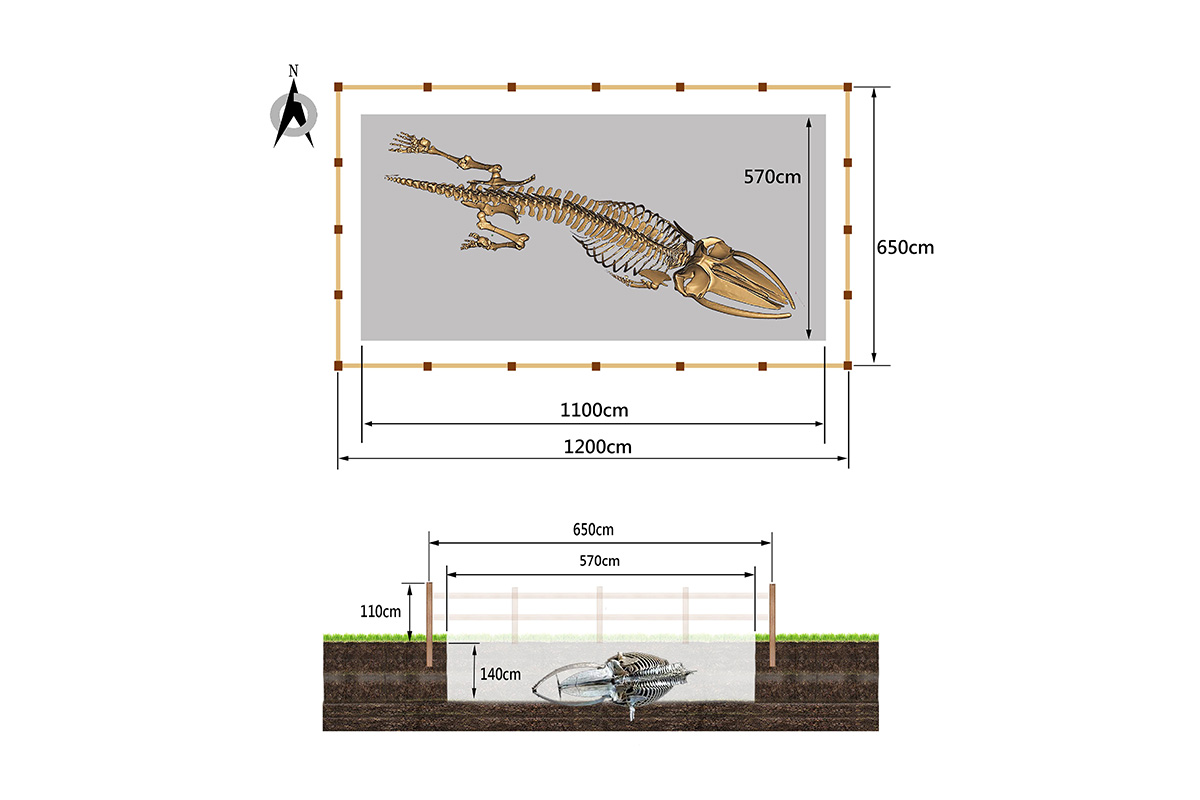
Archeological excavations in Okunoto have uncovered many remains of dolphin and whale bones eaten by Jomon people. The whale memorial monument in the Otani area records show that whales have blessed the area by running aground three times since the Meiji period and that there are numerous legends related to whales in Suzu. After studying the history and lore based on interviews with local elders, the artist forged an archeological site of the remains of a 10-meter-long whale. The artist will also broadcast fake news of the ruins to connect distant legends to reality and examine the intermingling culture and history.
 Latitude/Longitude (Google maps coordinates)|37.525656, 137.283711
Latitude/Longitude (Google maps coordinates)|37.525656, 137.283711 MAPCODE (GPS input)|913 079 642*36
MAPCODE (GPS input)|913 079 642*36*Google and the Google logo are registered trademarks used with permission from Google Inc.
*Mapcode and MAPCODE are registered trademarks of Denso Corporation.